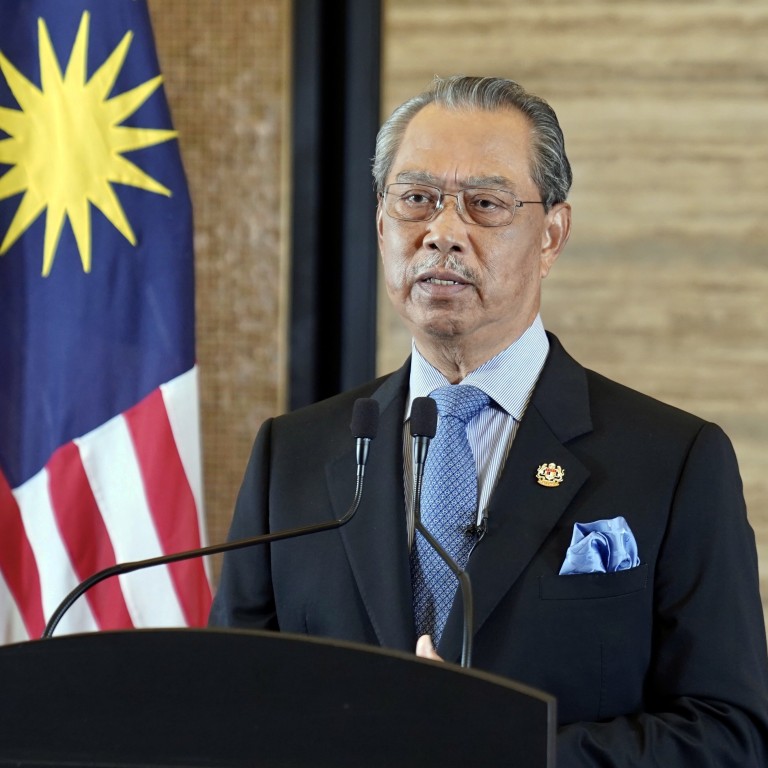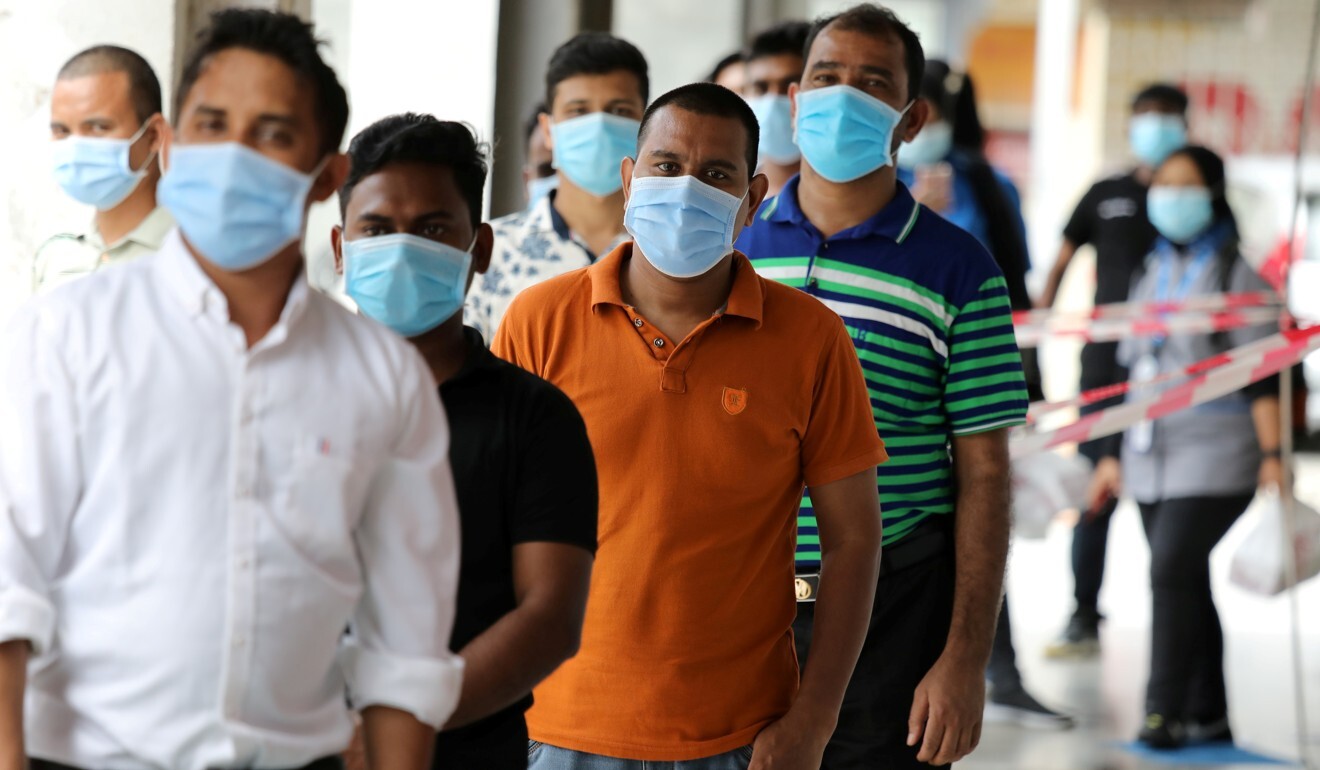
Coronavirus Malaysia: PM Muhyiddin Yassin will be first to receive vaccine when roll-out starts
- Malaysia will get its first batch of Pfizer-BioNTech Covid-19 vaccines on Sunday, and a national immunisation plan will kick off on February 26
- Muhyiddin will join leaders like Indonesia’s Joko Widodo and Singapore PM Lee Hsien Loong by taking the lead in getting vaccinated to allay concerns
The country’s first tranche of the Pfizer-BioNTech vaccine will arrive this Sunday, five days earlier than expected, and inoculations will begin next Friday.
Malaysia’s Muhyiddin taking flak again over Covid-19 double standards
Malaysia’s vaccine programme will be rolled out in three stages. The first will run from February to April involving 300,000 medical and 200,000 non-medical frontline workers, such as politicians, security and welfare officers. This will be followed by at-risk groups such as the infirm and elderly, and the last phase will be for Malaysian adults.
“This comprehensive programme is aimed at ensuring herd immunity in the community so that we can stop the spread of Covid-19 infections and bring an end to the pandemic,” Muhyiddin said.
Vaccination is currently voluntary in Malaysia, and interested parties must register their participation by signing up on the nation’s contact-tracing app or a government website launched on Tuesday.

Malaysia’s opposition coalition Pakatan Harapan – which was unceremoniously turfed out of power via political coup in early 2020 – said it would give its full support to the government’s plan.
These remarks come despite major differences in opinion and several attempts at wrestling back power via Parliament last year.
“Pakatan Harapan will support the efforts of the Health Ministry in the National Immunisation Plan. Our state governments, members of Parliament and assemblymen will cooperate with and support the Health Ministry to make this programme a success as it crosses the political divide,” it said in a statement.
It also urged the government to include opposition leaders in the Immunisation Plan’s committee to demonstrate to the people it was truly a bipartisan effort.
Meanwhile, there have been concerns from Malaysia’s largely Muslim populace over the halal status of the vaccination, and whether it contains any pork products; concerns that Indonesians have also shared. However, manufacturers Pfizer, Moderna and AstraZeneca have all confirmed that pork by-products are not part of their vaccines.
Muhyiddin on Tuesday assured Malaysians that the National Council for Malaysian Islamic Affairs had confirmed that the vaccine was allowed. In November, Science Minister Khairy Jamaluddin said the country’s federal Islamic development agency would be satisfied that the vaccines were halal.
The government will also prepare a special injury scheme to compensate people who experience serious side-effects after receiving the vaccine, Khairy said on Tuesday.
“We will also have protocols in place if excess doses are not used. We will be giving doses to security personnel and people volunteering at the [vaccine delivery] centres so there is no wastage,” he added.
Coronavirus Malaysia: mental health issues grow with few solutions in sight
Last month, the minister said Malaysia was aiming to immunise 75,000 people a day and set up 600 vaccination sites in both public and private clinics or hospitals.
The ultimate goal is to vaccinate 27 million of Malaysia’s 33 million people by the first quarter of 2022. The plan also includes vaccinating members of Malaysia’s foreign worker community, which numbers about 4 million.
Why vaccine inequality threatens the world’s recovery
In a statement, a group of top medical professionals welcomed the government’s decision to provide vaccines for all residents of Malaysia for free, including undocumented people.
“This is the correct ethical, public health and economic decision for Malaysia, and necessary to achieve herd immunity and health equity,” said the Malaysian Health Coalition.
“We also call for an urgent all-of-government effort to combat vaccine misinformation and conspiracy theories. We need a mass public education campaign to help the [people] understand the basic science behind vaccines, especially to answer their reasonable questions. Improved health literacy and public awareness will ensure enough people register for the vaccine.”
Malaysia has reported a cumulative 266,445 cases and 975 deaths since the coronavirus arrived in the country in January 2020, the third highest number of cases in Southeast Asia after Indonesia and the Philippines.
Additional reporting by Reuters

